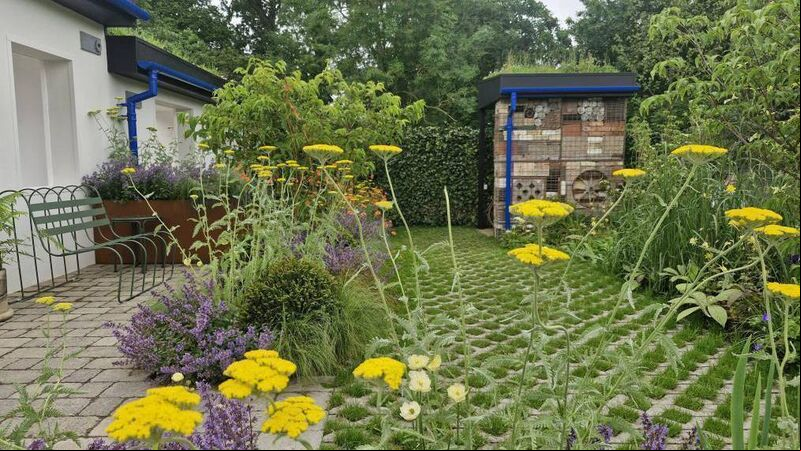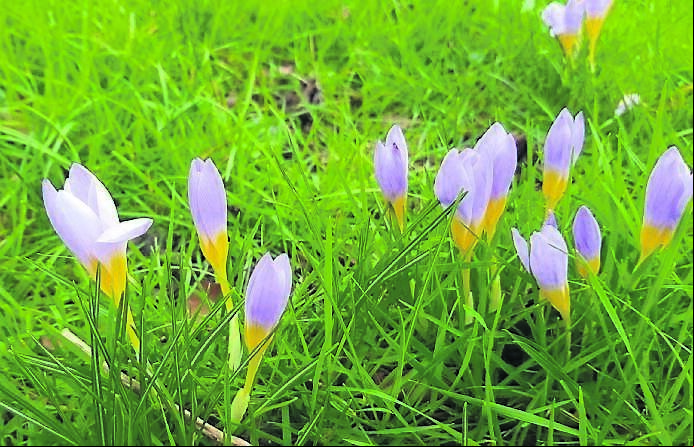In the garden: 10 ways to be a sustainable gardener

Nicola Haines’ garden at Bloom 2024, which provided some great ideas for more sustainable gardening - bug hotels, less hard surfacing, rain water collection and perennial planting
It has been a cold but reasonably dry February so far, and this is handy for getting some of the seasonal jobs done, like pruning, clearing, tidying, and generally getting ready for the growing season ahead.
4. Install a bug hotel on a south-facing wall for solitary bees and other insects to over-winter in. They look great and provide shelter and refuge for insects and pollinators.


Crocus have begun to make an appearance in the last week or two amid all of the storms, and are cheering us on into February!







 App?
App?


